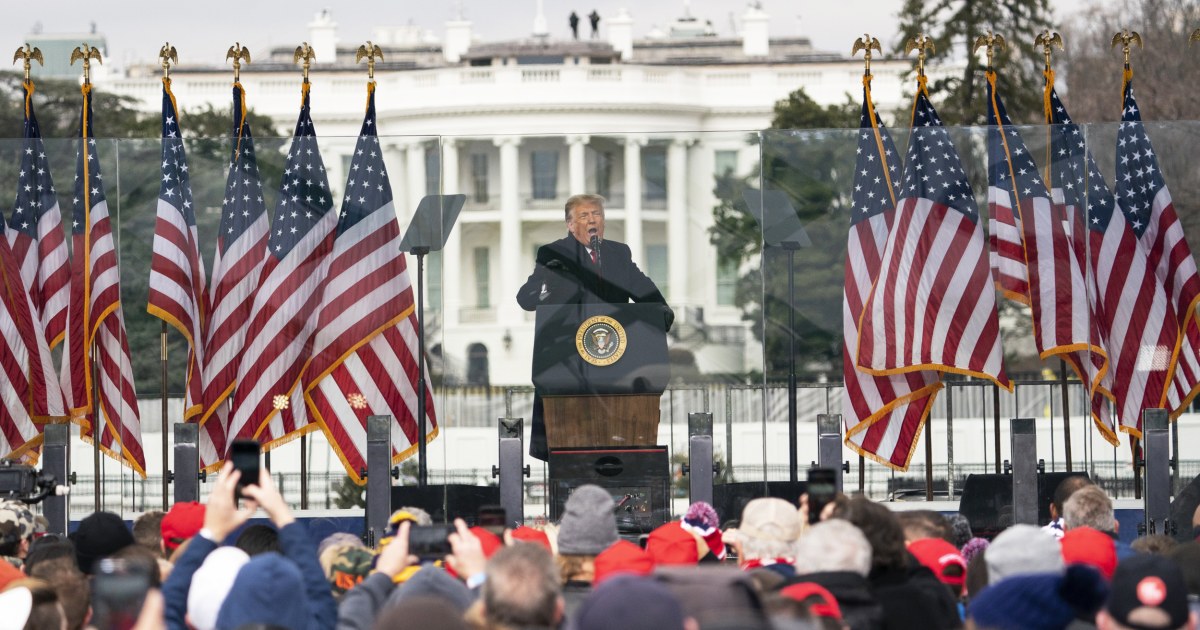The Senate will now decide whether President Donald Trump should be convicted of the House’s charges of inciting insurrection, and there was also discussion of possible criminal charges against Trump after he left office, stemming from the same conduct. This would include federal crimes, such as defending the overthrow of the government, rebellion and insurrection.
But it would be difficult to convict Trump in a conventional criminal trial for his speech, even if the Senate condemns him. And if the Senate follows the First Amendment precedent, it could escape the conviction there as well.
There is no doubt that freedom of expression is not absolute. The First Amendment does not sanction incitement to rebellion. When an immediate threat to public security, peace or order arises, the government’s power to punish speech is obvious.
On the other hand, the First Amendment’s freedom of expression clause protects a wide variety of words, even though listeners may find it profoundly offensive. Speech is not “incitement” unless (1) there is evidence that the speaker intended speech to produce imminent illegality and (2) speech was likely to produce that illegality.
Speech with only violent images would be protected by the First Amendment. Even the mere tendency of the speech to encourage illicit acts is not enough to punish it, according to the Federal Supreme Court.
The punishable incitement must “specifically advocate” for listeners to take illegal measures, give the crowd detailed instructions on how to break the law or summon the crowd to commit a criminal act, the higher court said.
According to the Supreme Court’s Brandenburg test, the speech cannot constitute incitement unless the speaker intends to result in illegality.
Some, including senators at the Trump trial, will point out that the rioters invaded the Capitol after hearing Trump’s speech. For them, the evidence that the speech incited violence is apparent: there was violence afterwards.
But defining speech by public reaction, however, can be an unconstitutional “heckler veto”, as legal doctrine is known.
The heckler veto doctrine predicts that a crowd’s hostile reaction does not turn protected speech into incitement. A speaker is not automatically responsible for the actions of anyone who was at an intended peaceful demonstration. Instead, the speaker must intend to engage in criminal conduct.
Some will argue that Trump’s intention was evident in his use of words like “strength” and “fight”. This can be. Courts have protected possibly more violent speech in other cases. Statements like “Let’s take the street again” and “If we catch any of you walking into these racist stores, we’ll break your neck” seem more to defend violence than the language of Trump’s speech.
There is also the question of “imminence” necessary for the incitement. There was no violence reported in Trump’s speech, which was in Ellipse. The Capitol is more than a kilometer away. The Capitol invasion clearly happened after the rally, but not seconds after the rally, and not in the same place as the rally.
Even if there is evidence that Trump “intended” to cause violence with his speech, and even if there is evidence that the violence he intended to cause was invading the Capitol, there is potentially a question as to whether the violence was “imminent” enough to be Criminal.
Some will conclude that words like “struggle” and “strength” gave the crowd detailed instructions for violently entering the Capitol building. The Senate can still condemn, even if reasonable minds may differ on these factual conclusions. A criminal jury must be unanimous.
A criminal jury is subject to the standard of reasonable doubt. The Senate does not. It is limited by the voting standard of the two-thirds supermajority and not much else.


